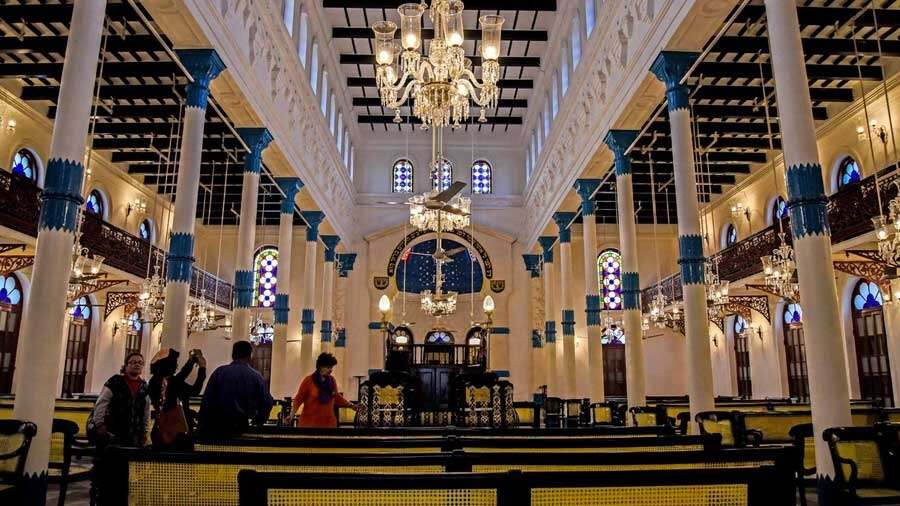Hurrying down the busy Burrabazar area, Elisha Twena, 78, one of the last Jews of Kolkata ducked into a gate hidden by pavement shops selling trinkets at the crossing of Brabourne Road with Canning Street, leading into a stately red building with a tall steeple.
Walking in through an arched door with the 'Star of David' embellished over it, Twena entered a huge hall with chequered marble flooring, regal chandeliers and ancient fans hanging from a two-storied high roof. The hall's Renaissance stained glass windows, and ornate floral pillars shipped in from Paris gave it a medieval grandeur.
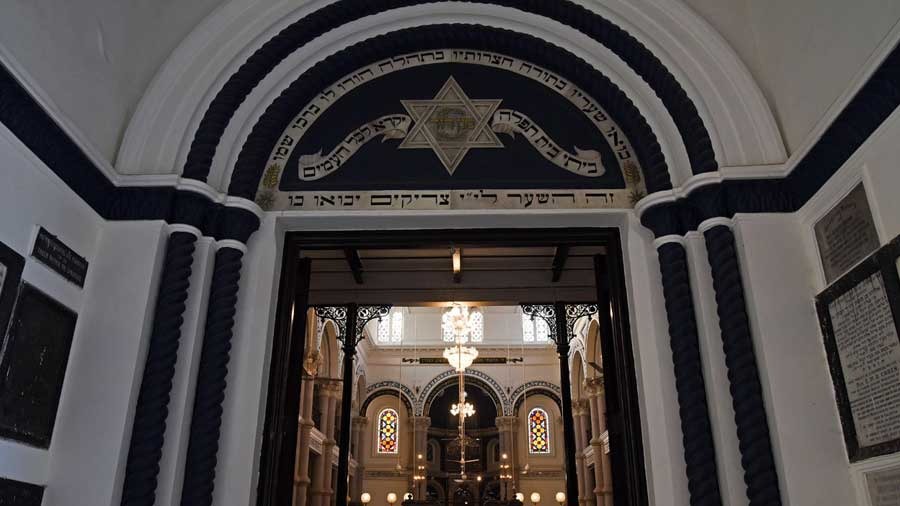
The entrance of the 137-year-old Magen David Synagogue Amit Datta
The building which may easily be mistaken to be a Central European church but for its setting is the 137-year-old Magen David Synagogue, considered one of the most magnificent Jewish temples in Asia, built by the 19th century realtor and business tycoon Elias David Ezra, whose legacy still lingers on in a street named after him in central Kolkata.
Like the 20-30 odd Jews left in this eastern mega-polis down from a peak population of 6,000 just after World War II, the Magen David where religious services have long stopped and its older neighbour Neveh Shalom Synagogue built in 1831, remain tucked away in obscurity, hidden to all but those who seek it.
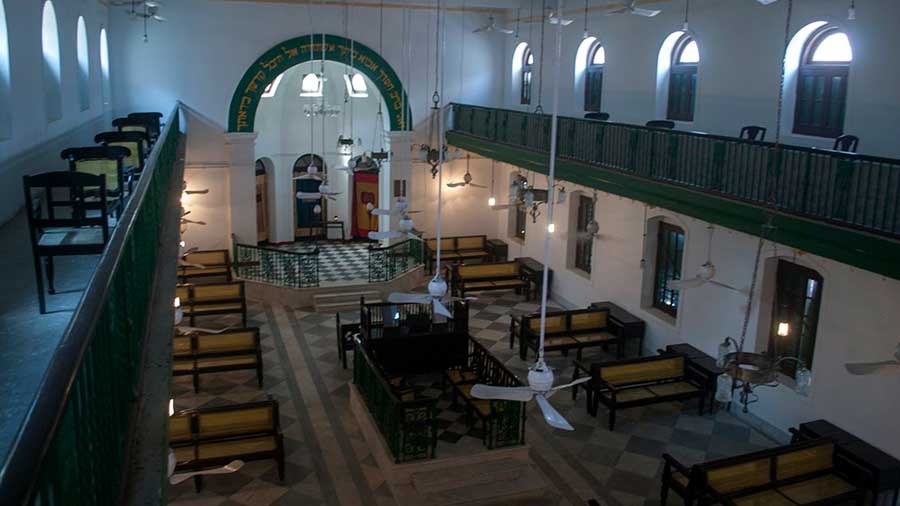
The Neveh Shalom Synagogue, built in 1831 Rangan Datta
“All my classmates from Kolkata's Jewish Boy's School who used to come to this synagogue, migrated out in the 1960s and 1970s in search of better prospects. We now don't even have a rabbi left here,” said Twena, a pensioner who lives in a penthouse on Loudon Street.
Waving his hands towards an empty driveway and garden, he reminisces, “This is where we used to play cricket after religious services. There are no children left to play now, the youngest among us is 53 and the oldest 96.”
However, he has no regrets.
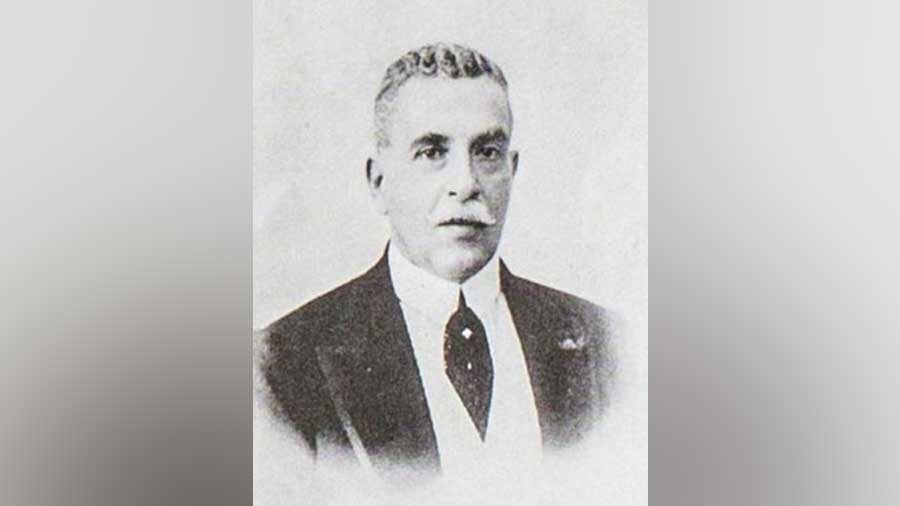
The 19th century realtor and business tycoon Elias David Ezra, whose legacy still lingers on in a street named after him in central Kolkata
For him, Kolkata, or Calcutta, as he still calls it, is one of the important centres of Jewish life, and has been ever since Shalome Obadiah Ha-Cohen, a merchant from Aleppo landed in the city, some 223 years ago to become court jeweller to the Nawabs of Awadh and Maharaja Ranjit Singh.
Legend has it that he was asked to value the 'Kohinoor' diamond among other jewels in the 'Lion of Punjab's' treasury.
As Ha-Cohen was joined by his relatives and others from the Baghdadi or middle eastern Jewish community, the city became a hub for Jewish enterprise and trade with connections with Shanghai in the east and London in the west and all important port cities in between.
Along with Armenians, Greeks, Parsis and Chinese, Jews brought a special cosmopolitan flavour to colonial Kolkata. The nearby Pollock, Ezra and Synagogue Streets thrived with Jewish families settling down there and the Jewish New Year was celebrated with as much fervour as Durga Puja and Christmas.
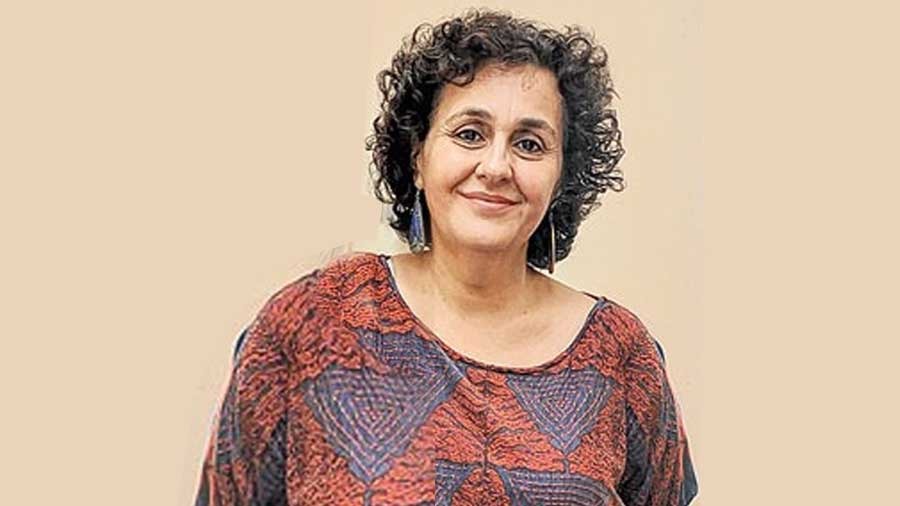
‘We were mostly Arab Jews, conservative Jews, but as we interacted with Indians and Europeans, we changed,’ said Jael Silliman, a well-known author and scholar TT archives
“We were mostly Arab Jews, conservative Jews, but as we interacted with Indians and Europeans, we changed. We shed middle eastern attire for western clothes, the magnificent Magen David was constructed in such a manner that from afar it looks like a church, earning it the nickname 'Lal Girja' (Red Church) at the same time we left an indelible impact on the city”, said Jael Silliman, 66, a well-known author and scholar.
Hospitals, synagogues, boys' and girls' schools, besides numerous educational and charitable institutions were set up.
Ezra who set up the Magen David in his father's name and married into the wealthy Mumbai-based Sassoon family, often called the 'Rothschild of the east', also owned many of Kolkata's landmarks which included Chowringhee Mansion, Esplanade Mansion and Ezra Mansion.
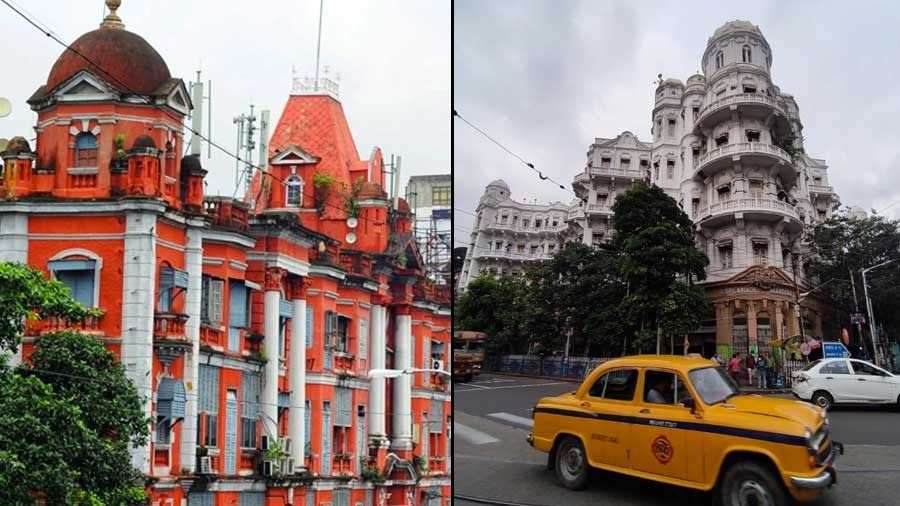
Elias David Ezra also owned many of Kolkata's landmarks, which included (left) Chowringhee Mansion and (right) Esplanade Mansion Amit Datta
Other Kolkata Jews owned jute mills, cigarette companies, textile and export firms including blue-chip firms Agarpara Jute Mills, National Tobacco Company and Great Pyramid Insurance.
Kolkata got its first Hebrew press in 1840, and its first Judeo-Arabic weekly Mevasser in 1873.
Bene Israeli Jews from Mumbai too flocked to the city, as did European Jews, victims of Nazi Germany's persecution. By the time the Second World War engulfed the world, Kolkata's Jews numbered nearly 6,000.
However, the bulk and the heart of the community remained Baghdadi Jews.
Kolkata's Jews excelled in the world of movies too, Rachel Sofaer became a top heroine of the silent era under the stage name Arati Devi, while Ezra Mir under the name Edwyn Myers became a well-known film director.
With Independence, partition riots and socialistic flavour to India's economic policies, many Jews, who were among the first free marketeers in the world, decided to migrate. “Most of my classmates went to Australia, Canada, the US and England,” said Twena. Very few migrated to the promised but far more austere land of Israel.
Most of them went into business abroad and became millionaires. They still come to Kolkata but their enterprise, family are now there, he pointed out. Twena said despite favouring free enterprise, Kolkata Jews were eclectic in their beliefs and among others who held radical views, he had a teacher Saul Ezra, who was a Leftist and a personal friend of West Bengal's late Marxist chief minister Jyoti Basu.
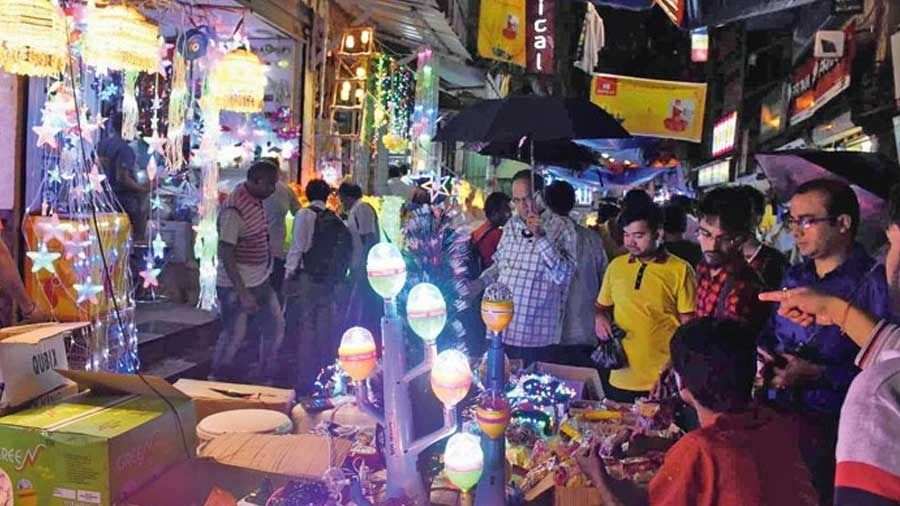
Ezra Street usually comes alight during Diwali for lights shopping TT archives
The surviving Jewry of the city is, however, unsure how many are to be counted as Jews. Hence the figure for Kolkata varies between 20-30.
“I know it sounds strange, but there are differences over whom to consider a Jew. Traditionally, children of a Jewish mother are Jews,” said Silliman.
However, many men married outside the community and their off-spring too are counted as Jews after a difficult conversion process.
The matrilineal tradition has meant that Brian Auckland, 68, who is on the board of Magen David and the Jewish Girl's School, is counted as a full Jew. It also meant that Regina Guha, daughter of Pearey Mohan Guha, an affluent 19th century Bengali lawyer, and Baghdadi Jew Simcha Gubba, who gained fame by becoming the first Indian woman to pass the law exam in 1915, and her sister Hannah Sen, a well-known Indian freedom fighter, who later became a Member of the Rajya Sabha are counted as Jews.
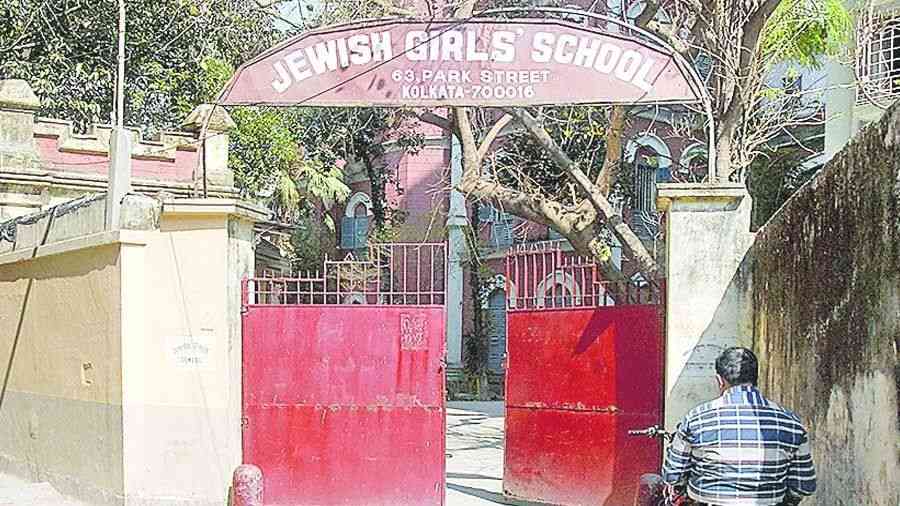
The Jewish Girl's School TT archives
Kolkata's Jews continued to serve India loyally after Independence. There were Jewish sheriffs and magistrates in this city and many were officers in the armed forces. Lt. Gen. J.F.R Jacob, who was posted here as Chief of Staff, Eastern Command, played a critical role in the 1971 victory, whose 50th anniversary we are celebrating, said Auckland.
Despite the diminishing numbers, Jews and Kolkata continue to cherish each other. The caretakers of the David Magen as well as two other synagogues and a cemetery are non-Jewish Kolkatans. As are most teachers at the two elite schools run by the Jewish society. All our students are non-Jewish and have been so for many years, said Auckland.
Said Masud Hussain, 42, caretaker of the Neveh Shalome Synagogue, we look after their 'dharover' (legacy) because we know wherever Kolkata's Jews are, they still feel for this place. This is their city.
